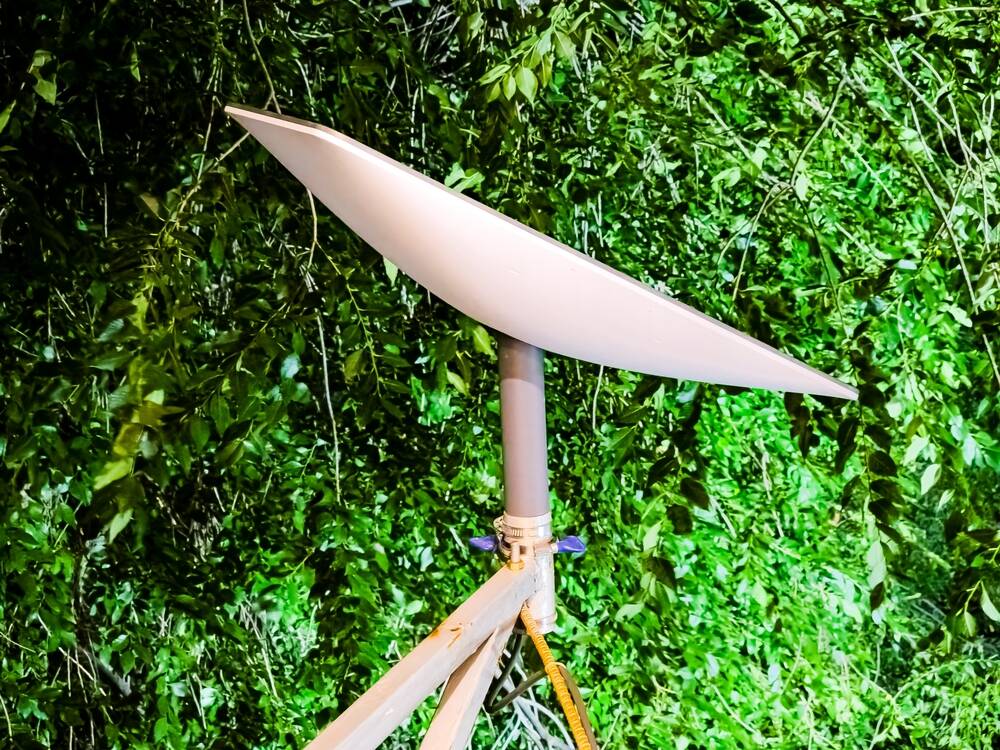Musk's Broadband Satellite Kingdom Starlink Now Cash Flow Positive – Or So He Claims

SpaceX's satellite broadband service Starlink has achieved "breakeven cash flow," according to CEO Elon Musk, sparking speculation that a public offering for the company might now be on the cards.
The Starlink service has proven to be something of a success, recently hailed in tests by network intelligence firm Ookla as the provider to beat on download speeds.
Starlink chief Musk said on X that the company has achieved breakeven cash flow, meaning it is no longer losing money.
However, according to CNBC, it isn't clear what Musk meant by this as SpaceX president and COO Gwynne Shotwell stated earlier this year that Starlink had achieved "a cash flow positive quarter" in 2022, and "this year, Starlink will make money."
In fact, Starlink reported $1.4 billion in revenue for 2022, The Wall Street Journal reported, up from $222 million the year before, although this falls far short of early predictions from SpaceX that the service would generate $12 billion in revenue and $7 billion in operating profit by 2022.
Musk had previously said that he would consider listing Starlink for an initial public offering (IPO) once the company's cash flow was reasonably predictable, and prior to that Shotwell had told a group of investors that SpaceX might well consider spinning off Starlink.
We asked SpaceX if there were any plans to take Starlink public, but the company was not immediately available to respond.
In his post, Musk claimed that Starlink "is also now a majority of all active satellites and will have launched a majority of all satellites cumulatively from Earth by next year."
This is presumably a reference to Starlink being estimated to have more than 5,000 satellites in low Earth orbit (LEO), amid plans to loft even more next year to expand its footprint further into Africa, Asia, and South America. SpaceX previously talked of fielding a constellation of 12,000 satellites to deliver its broadband service.
Musk also had reason to be smug because a potential rival for Starlink has bowed out of the satellite broadband business.
- World leaders ink AI safety pacts while Musk and Sunak engage in awkward bromance
- Amazon's Project Kuiper satellites prepare for testing after one late Prime delivery
- Starlink starts advertising Direct to Cell satellite phone service as coming in '2024'
- Starlink speeds ahead in the satellite race but rivals aren't starstruck just yet
Aviation Week reports that Boeing has surrendered its license from the Federal Communications Commission (FCC) to launch and operate a non-geostationary satellite service, which the aerospace giant had been granted in 2021.
In a letter sent to the FCC, the company acknowledged that it was in breach of the Commission's rules requiring a deadline for the construction and launch of a satellite system under the terms of the licence, and agreed to pay a $2.2 million forfeiture fee.
The licence permitted Boeing to operate a 147-member V-band constellation, but the company reportedly planned to expand to a network of more than 5,000 satellites.
In response to the news, Musk sensitively posted: "Competing with SpaceX is tough."
We asked Boeing if this was the end of its satellite broadband ambitions, or if it intends to apply for a new license in future.
In a statement, Michelle Parker, Vice President, Boeing Mission Systems told us: "Our V-Band test mission provided valuable data and learning. For now, we are not immediately pursuing a V-Band constellation ... We will continue to invest in opportunities that push what's possible for connectivity in space."
Parker said that Boeing is confident that V-band will someday be commercialized as global demand for satellite broadband connectivity continues to increase.
"Boeing continually evaluates its spectrum usage to align with business objectives and industry regulations. We're prioritizing more immediate growth steps at this time," she said. ®
From Chip War To Cloud War: The Next Frontier In Global Tech Competition
The global chip war, characterized by intense competition among nations and corporations for supremacy in semiconductor ... Read more
The High Stakes Of Tech Regulation: Security Risks And Market Dynamics
The influence of tech giants in the global economy continues to grow, raising crucial questions about how to balance sec... Read more
The Tyranny Of Instagram Interiors: Why It's Time To Break Free From Algorithm-Driven Aesthetics
Instagram has become a dominant force in shaping interior design trends, offering a seemingly endless stream of inspirat... Read more
The Data Crunch In AI: Strategies For Sustainability
Exploring solutions to the imminent exhaustion of internet data for AI training.As the artificial intelligence (AI) indu... Read more
Google Abandons Four-Year Effort To Remove Cookies From Chrome Browser
After four years of dedicated effort, Google has decided to abandon its plan to remove third-party cookies from its Chro... Read more
LinkedIn Embraces AI And Gamification To Drive User Engagement And Revenue
In an effort to tackle slowing revenue growth and enhance user engagement, LinkedIn is turning to artificial intelligenc... Read more

